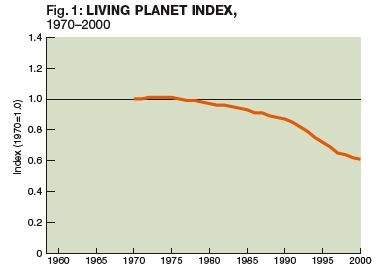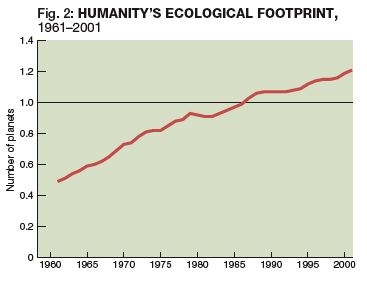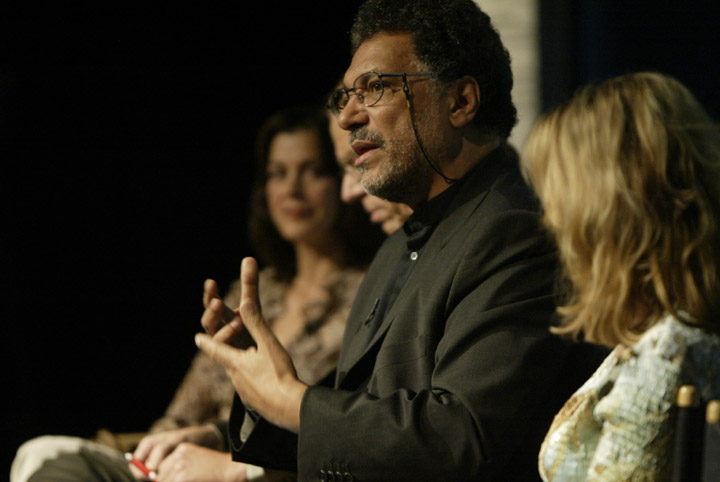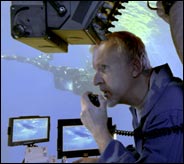February 26, 2005
2/25 - Coral Graveyard in Indonesia: a STUNNING photo
Just two weeks ago, Craig Shuman of Heal the Bay joined Reef Check on a Surf Aid trip to examine the damage to coral reefs in parts of Indonesia that were the closest to the massive earthquake (estimated to have been a 9.0). The trip was co-sponsored by Quiksilver and you can read about it on their website. His photo below is from Simeuleu Island where the reef was lifted up as much as 2 meters and left high and dry, killing all the corals. The map shows how close it was to the epicenter. For more details, you can contact Craig at: cshuman@HealTheBay.org

The Coral Graveyard: the high tide mark is now below these corals.

Simeulue Island (just below the red dot): Can't get much closer to the epicenter.
February 24, 2005
2/24 - IMPORTANT NEW PAPER: On the pluses and minuses of MPAs
Okay, folks, here you go. There's plenty of ammunition for both the PRO and CON sides of MPAs in this new paper (Download file), thus illustrating the job of scientists -- to call things as they are, not advocating for or against the issue, just laying out the facts for the public to decide. And by the way, I can vouch for the high level of authority among the authors, having once been hired by the lead author who was chairman of my department at University of New Hampshire. This paper summarizes the current cutting edge of MPA science.
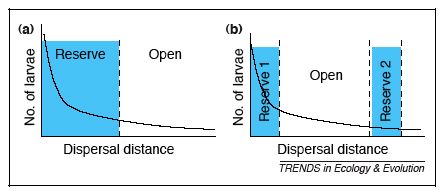
Figure (a) shows a reserve which is half empty, whereas (b) is clearly half full (from Sale et. al., 2005)
2/24 - THE OFFICIAL BAD NEWS FROM WWF: The Living Planet Report for 2004
Yes, I know, everyone's tired of hearing the bad news and feels that environmentalists are alarmists. But facts are facts, and that's what this simple summary from WWF presents (which you can download the pdf version of). The most compelling part of the report are the two graphs below. Take a look at 'em. The first one shows the sad, cumulative decline in animals for the entire planet. The second one says we began exceeding our "ecological footprint" in 1985 (we now need 1.2 planet earth's to sustain our current lifestyle).
The bottom line of all this: The environmental movement is losing. The solution to this problem: Don't lose.
And seriously. Look at that first figure which dropped from 100% to 60% in just 25 years, then extrapolate that for another 50 years. Not a pretty picture.
Fig. 1 - We've only got 60% of the wildlife we had in 1970
Fig. 2 - We now need 1.2 planet earths to sustain our current lifestyle.
THE BOTTOM LINE: We're losing the environmental struggle.
2/24 - Oceans Alive: Our Choice for Best Ocean Animation
At least in our opinion, if we gave awards. Environmental Defense's Oceans Alive website has a wonderful piece of animation that you can stare at all day.
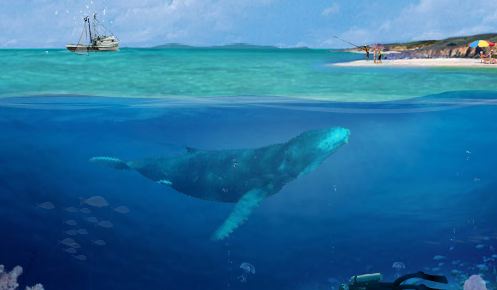
Hmmm, aren't those both a commercial and recreational fishermen in the distance?
February 23, 2005
2/23 - Resetting A Baseline: There were 10X more whales than previously thought
This story from Steve Palumbi of Stanford University first came out a couple of years ago, but continues to be one of the all-time great possible shifted baselines situations in which everyone's baseline for whales may be off by an order of magnitude.

Showing whales who's in charge at SeaWorld.
2/23 - Straight Talk from Capt. Paul Watson of Sea Shepherd on Canadian Fish
Like him or not, you can't deny that Captain Paul Watson of Sea Shepherd does not mince words when it comes to his opinion of Canada's fisheries policies.
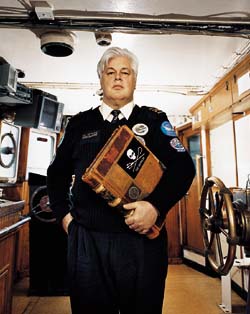
Captain Paul Watson: plain and simply an amazing guy.
February 22, 2005
2/22 - Cher Slams Brittany, J. Lo
Sorry. Just getting a little exhausted from all the fishermen stuff. But if you don't understand the Cher connection, then you must not have yet watched "The No-Seafood Grill, 2050" film from the Groundlings. And quite frankly, like the waiter, we can't work with people who aren't into Cher.

Cher: She always gets the Chesapeake Bay Cannonball Jellyfish
2/22 - Great Barrier Reef: 20 years and we're done
My good friend, the Australian Viking himself, Professor Ove Hoegh-Guldberg, leads the wake-up charge with suggestions that before kids being born today are legally able to drink apple martinis in the U.S., there will be no Great Barrier Reef for them to celebrate.

Will today's newborns have a Great Barrier Reef to toast to with their
first legal apple martinis?
2/22 - Ice on Planet Earth: Soon to be a thing of the past?
Just look at what the world's best climate scientists are saying. I suppose you can still argue with them, but it's an an awful lot of brain power you're going against. Here's an excerpt from the San Francisco Chronicle article:
"We were stunned by the similarities between the observations that have
been recorded at sea worldwide and the models that climatologists
made," said Tim Barnett of the University of California's Scripps
Institution of Oceanography. "The debate is over, at least for rational
people. And for those who insist that the uncertainties remain too
great, their argument is no longer tenable. We've nailed it."

Remember when there used to be these things on planet Earth?
February 21, 2005
2/21 - Shifting Planetary Baselines: Chile today, hot tomale
Actually, it's Argentina in the photo below. But check out the changes. Yeeks.

Vanishing glaciers in Argentina
2/21 - Global Frickin' Headache: The endless carbon-ocean mess
Is it bad or is it good? Are we headed for a CO2 nightmare or is the system going to self-correct? Here's an article that says sulfur pollution from the cities makes sulfur dioxide in the atmosphere that liberates the iron held in dust particles making it available to phytoplankton when it hits the ocean causing blooms of phytoplankton that suck down CO2 from the atmosphere counter-balancing our excess production of CO2 and making everyone happy and peaceful.
How in the world is anyone supposed to figure out if there's "a crisis" in progress or not? It's an endless mess, but that's science.
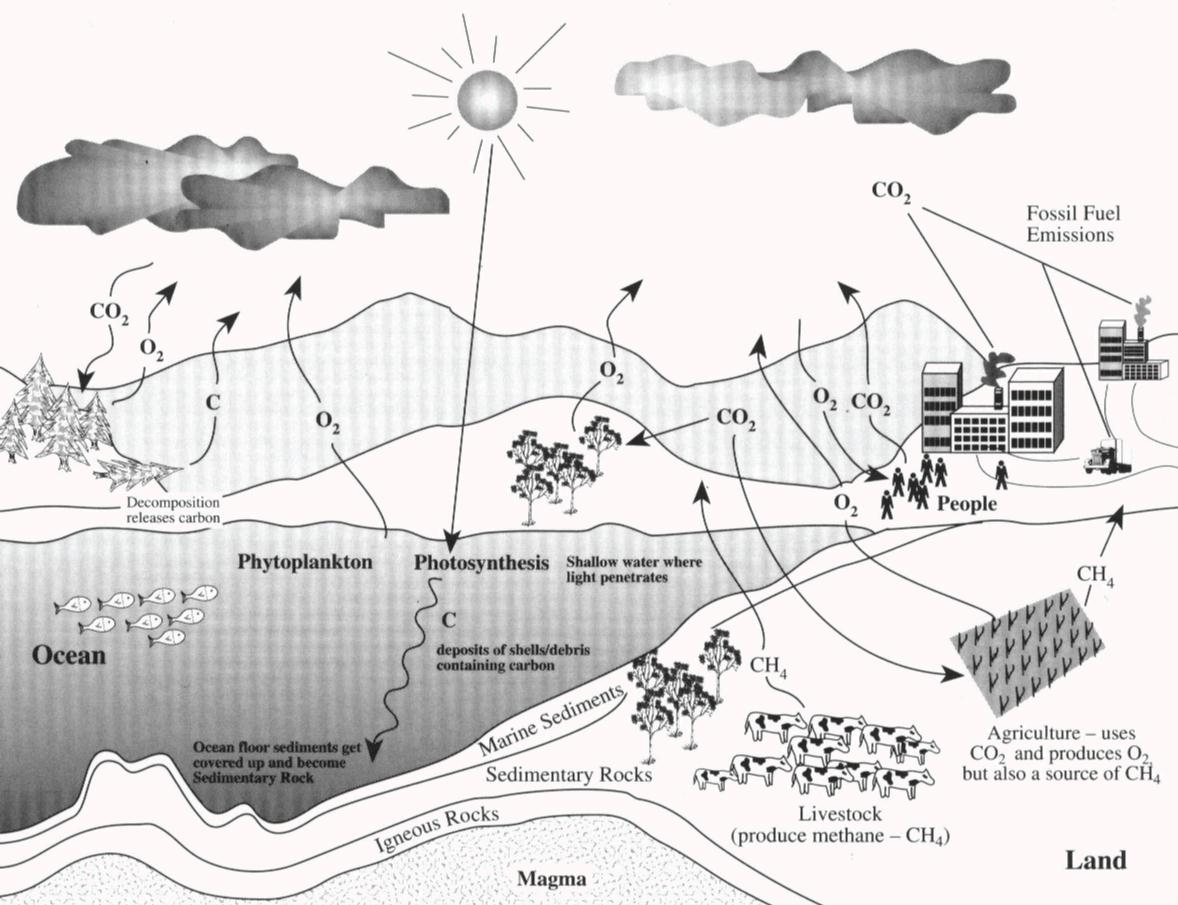
The Carbon Cycle: See how simple it is!
February 18, 2005
2/18 - THE "NORTH PACIFIC TRAWLING COALITION": A nice note from Dave Allison of Oceana
Dave Allison of Oceana posted this really good comment which I wanted to make sure everyone got the chance to see:
Randy: Thanks for the note on the success of the North Pacific deep sea coral project. But, as you and others in the community know, it takes more than one organization to bring the changes necessary for the health of the oceans.
In this case, the Alaska Marine Conservation Council, The Ocean Conservancy and the Alaska Oceans Network were just a few of the many local, regional and national organizations that are entitled to join in the celebration of this great step forward in ocean management. More than 30,000 members of these and other conservation and other stakeholder organizations wrote and called decision-makers on the way to our victory. In the end, even the trawl fishermen and their advocacy organizations joined in supporting this change to a new and progressive model for oceans mamagement.
Now we all move on to build even broader support for similar actions in the other fishery management councils, in the halls of Congress and with NOAA in the Department of Commerce.
Here's to more success for all of us and for the oceans.
Dave Allison, Director,
Oceana's campaign to stop destructive trawling.
2/18 - Feeding Concrete to the Sea: Surfrider documents how seawalls don't work in Rincon, Puerto Rico
Like offering up sacrifices to the sea gods, the good people of Rincon, Puerto Rico keep building seawalls, and the good people of Surfrider keep photographing their demise.
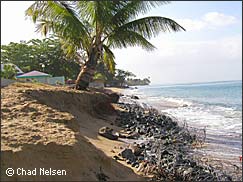
Eating rip rap: what the sea does to sea walls.
2/18 - Solid Jackson: SB co-founder on front page of San Diego Tribune
Is it "advocacy" to tell the public straight-forward facts about the changes you've seen in the oceans in your lifetime? The San Diego Tribune interviews Dr. Jeremy Jackson on the subject of the politicization of science.

Science these days: Speak the facts, dodge the arrows.
February 17, 2005
2/17 - Why We're Such Big Fans of San Diego Council Member Donna Frye
As part of the new slide show we're producing with Surfrider, titled, "Shifting Baselines in the Surf," I recorded San Diego Council Member Donna Frye yesterday performing a small sound bite for the production. She is the greatest. She was part of our Shifting Baselines Evening at Scripps Birch Aquarium a couple of years ago. Hopefully by now you know all about her spontaneous write-in candidacy last fall for the San Diego mayoral election which many people believe she won. Regardless of how that turns out, she is a living example of a really good grass roots activist who has risen through the political system, yet still retains the friendly, down home characteristics of smaller scale environmental activism. She was such a good sport, and her office walls are covered with photos and posters from her years of fighting for clean water and beaches along the California coast.
![donna[1].headshot.jpg](http://shiftingbaselines.org/blog/images/donna[1].headshot.jpg)
Donna Frye: Our favorite mayoral write-in candidate
2/17 - Why Hasn't "The Ocean Crisis" Made the Cover of Time Magazine?
In January, 2003, when we held our Roundtable Discussion, there was lots of talk about the upcoming Pew Oceans Report, being the most important landmark in ocean conservation in 30 years, probably putting "The Ocean Crisis," on the cover of Time Magazine. It's two years later. The oceans never made the cover of Time or Newsweek, in spite of both the Pew and U.S. Oceans Commission Reports. The answer offered for this among many ocean conservation communications folks was, "The oceans just can't compete with terrorism and other bigger items." But then why did endangered tigers make the cover of Time in March of last year (8/23/04)? And isn't that the same story they ran a decade earlier (3/28/94)?

Is the tiger crisis more important than the ocean crisis, or does it
just sell more copies?

And, gee, what a co-inky-dink: Could it be almost the same cover, a
decade earlier?
February 16, 2005
2/16 - Ghosttrapbusters: Louisiana cleans up lost crab traps
Some crabbers in Louisiana admit they lose almost half their traps each year.
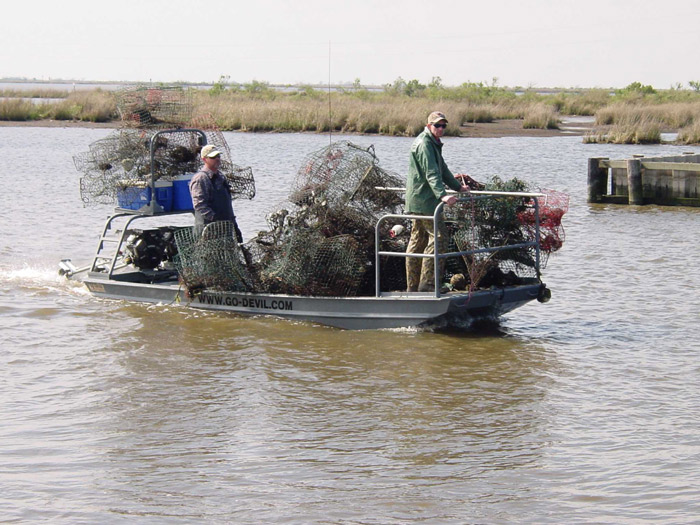
Ghost traps: Louisiana recovered 3600 last year
2/16 - Fiberglass for Wood: Trying for at least one post-tsunami improvement in fishing practices
Apparently oblivious of Daniel Pauly's Nature essay, authorities in the Andaman Islands are at work helping fishermen get back out and resume harvesting fish. But they are at least working on one improvement which is to provide fishermen with fiberglass boats to hopefully keep them from ravaging the limited amounts of hardwoods remaining on land.

Andaman Islands: helping to get rid of wood boats.
February 15, 2005
2/15 - Sharks Versus Craps: Tourism threatening the Bahamian gem of Bimini
Check out the plea from the Bimini Biological Field Station. It's the home to the best studied community of sharks in the world. The Bahamian government had pledged to create marine reserves to protect them, but now ... the lure of tourist dollars is looming large. Believe it or not, this is actually the rare situation where THERE IS SOMETHING YOU CAN DO-- look at the bottom of their web page and you'll see who to contact to let them know you would rather see them protect their ocean resources than create more casinos. And notice the rather sad piece of apologia they had to add to their page so that the knee-jerkers don't attack them (just as we have to do in explaining that we are not opposed to fishing, only over-fishing):
The Bimini Biological Field Station is not against development interests in Bimini, but it is against development that threatens to destroy the beauty and ecology of this precious island.

The Casino Crisis: Do we need a network of CPAs (Casino Protection
Areas)?
2/15 - TOC Cleans Up: Marine debris legislation is introduced
When it comes to cleaning up the oceans, nobody does it better than The Ocean Conservancy.

Marine debris can make for moving images
February 14, 2005
2/14 - Lordy, Lordy: The Jesus Gene made me do it
Apropos of not much, it's looking like we have a gene that makes us go to church. Might there be an ocean conservation gene? And if so, could gene therapy hold the solution to halting ocean decline?

Hamer Time: "The God Gene made me do it"
2/14 - Oceana Beloved By Deep Water Corals: Huge victory in N. Pacific bottom trawling debate
A lot of deep water hard corals can sleep a little better tonight, thanks to the determination of Oceana. Here's an excerpt from their press release:
The Council voted unanimously Feb. 10 to adopt Oceana's approach to protect 960,495 square kilometers of seafloor from destructive bottom trawling, a commercial fishing practice that drags heavy nets across the ocean bottom, destroying nearly everything in its path. The vote included 380 square kilometers banned to all bottom gear contact in the deep-sea coral and sponge gardens in the Aleutian Islands, and 7,156 square kilometers of seafloor in the Gulf of Alaska banned to bottom trawling.
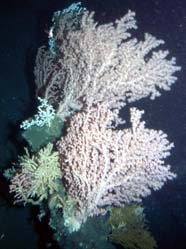
Sleeping Better Tonight: deep water corals that won't get ravaged by
bottom trawls
February 11, 2005
2/11 - Tsunami Did Minimal Damage to Coral Reefs
There seems to be a growing consensus that the tsunami didn't do that much damage to coral reefs, which I don't find that surprising, given that lots of divers survived the passage of the wave. A brief report in Science says the damage was sporadic. Obviously in places where huge amounts of debris were swept from the land onto the reefs there were bad things. But just the passage of the wave itself was not like a hurricane that produces repeated massive waves that can flatten reefs.
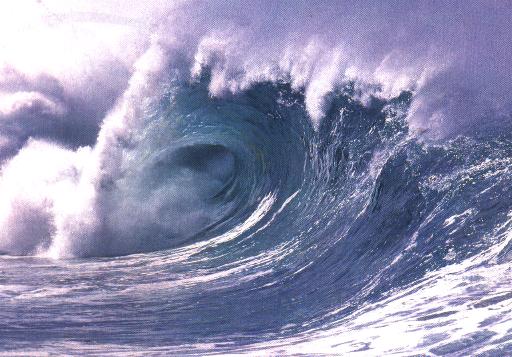
Tsunami: deadly on land, but not so much on the coral reefs
2/11 - Tsunami Aftermath: What do we think of Pauly's suggestion of retraining fishermen?
Daniel Pauly, one of the boldest leaders in the ocean conservation world, offers up a suggestion in Nature to the governments of southeast Asian countries affected by the tsunami.
February 10, 2005
2/10 - "Nat Gahn Doit": House Chairman says fuggetaboutit on the $4 billion for the oceans
Oh well, I guess it was worth asking. According to an article in the San Jose Mercury News it's not looking good for the oceans as Richard Pombo relishes in the bad news. From the article:
A $4 billion trust fund to protect and improve the nation's oceans is probably not going to happen, a key House committee chairman said Wednesday, casting doubt on a top recommendation of the president's ocean commission. "There may be some money that we can shake loose to fund some of the recommendations the ocean commission has, but is it $4 billion? I don't see where we get that," House Resources Committee Chairman Richard Pombo, R-Calif., said in an interview with The Associated Press.

NRDC's portrait of Representative Richard Pombo (R-Ca.)
February 09, 2005
2/9 - Look What the Tsunami Washed In: A little hoaxing?
I got the same e-mail from two different non-marine biologist friends today (showing long lists of people having forwarded them) that had a collection of about 25 photos of amazing deep sea fish and invertebrates with the heading of, "Deep sea creatures washed in by the Tsunami." Which certainly sounds kewl and the creatures are an all-star line up of deep sea weirdos, but ... are we really supposed to believe that this wave that a lot of scuba divers at 50 depth survived, somehow reached a mile down in the ocean, brought these things up, and deposited them on shore? I did a deep sea dredging cruise to Scotland in 1992 where we hauled up a lot of these same fascinating animals from 2 miles depth. Kinda hard to figure out how the tsunami could do this. Plus look at the photos -- they look like they were taken in the same sort of on-board ship laboratory that we worked in. I think some deep sea biologist decided to ride the wave of attention the tsunami generated. Or maybe I'm wrong.
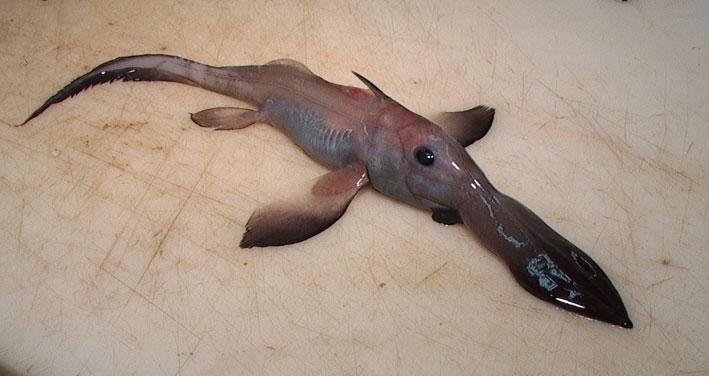
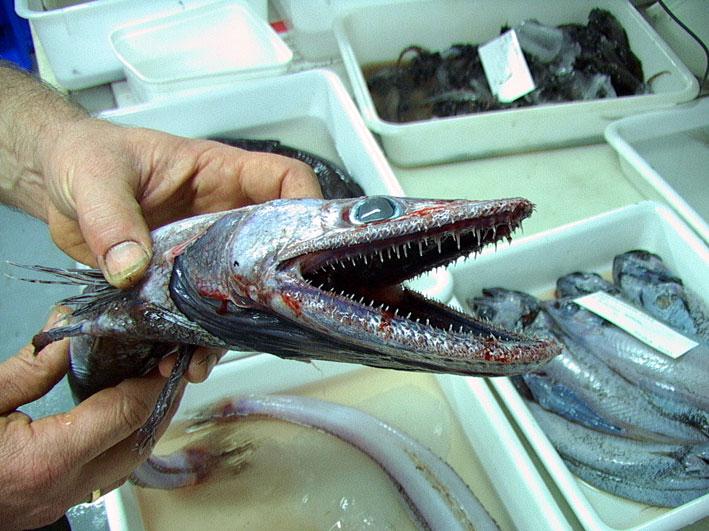
Fish Tales: did the tsunami deliver these whoppers?
February 08, 2005
2/8 - Editorial: Is Environmentalism Dead?
The subject has made its way up to the NY Times with an article about the authors of, "The Death of Environmentalism." As the article reports, many leaders of major environmental groups (such as Carl Pope, Executive Director of Sierra Club) are trying to stamp out such voices of criticism. Me thinks the skin of the environmental movement is indeed somewhat thin these days, having been scalded myself for saying a few critical comments publicly.
But the Shellenberger and Nordhaus book is not alone -- it joins books and essays by Werbach, Speth, Terborgh, Dowie, and many others who are all pretty solid environmentalists wanting things to work better. And then there is of course Lomborg's "Skeptical Environmentalist," on the more extreme end of the spectrum.
But as Josh Reichert points out in this article, the majority of the public still wants a clean environment.
All of which means these critics really should focus their energies on a single word, "persuasion." This is what was lacking from the Democratic party last year, and is too often lacking in environmentalism -- the psychology of trying to figure, realistically, how you can persuade people to join your view point. Certainly doesn't happen by calling the opposition liars all the time. And it certainly doesn't happen by throwing all your resources into corporate strategizing at the expense of good old fashioned grass roots work.
What's missing from environmentalism today are charismatic speakers (sorry, but Robert Kennedy Jr.'s voice is a bummer) espousing "the environmental ethic," combined with a keener awareness of the cutting edge of communication in the year 2005. Plus, as always, everyone needs to read Mark Dowie's book, "Losing Ground" about three times, at least.

Shellenberger and Nordhaus: Sorry, but Dowie said it all, much more
eloquently, in 1995.
February 07, 2005
2/7 - You Bet Your Acid: Some people are starting to get VERY worried about acid oceans
The idea first surfaced about a year and a half ago. Now, at a recent conference in the U.K., the tone has shifted to one of urgency. As if coral reefs aren't facing enough trauma with global warming, this is a second, entirely different threat which some scientists think will wipe out all coral reefs IN 35 YEARS.
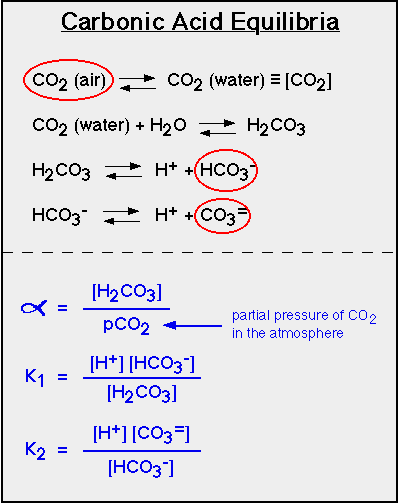
Acid Oceans: isn't it ionic?
February 04, 2005
2/4 - FRANCE UPDATE: More details on Jackson & Co. in Paris
One of the delegates, Valerie Lacroix, to the French symposium on, "Biodiversity and Governance," sent these interesting details on some of what she heard at the meeting:
While Jeremy Jackson noted that the biodiversity status of the oceans is worse than that of the land, the general “6th extinction” evaluation was overall gloomy as Dr. E.O. Wilson warned that the current average extinction rate is about 100 times higher than natural rates. Yet, scientists generally pleaded for more research, arguing that lack of knowledge prevents them from presenting a unified message to decision-makers.
President Chirac’s proposition to create an intergovernmental group on the evolution of biodiversity, developing a worldwide network of experts, was a response to this concern. However, numerous were the orators whom, such as Jose Sarukhan, National Institute of Ecology of Mexico, insisted that there was enough evidence for action.
Going against their own personal interests, some scientists, of which Jeremy Jackson was one, pointed out that science only monitors the decline of biodiversity, and that it might be much more useful to include social sciences, such as communication, sociology or economy, in the equation. This warmly applauded vision was obviously taken into account by the Scientific Committee, as the final “Paris Appeal of scientists in favour of biodiversity” recommends the launch of an international multi-stakeholder consultative process guided by a balanced multi-stakeholder steering committee.
Wangari Maathai, Nobel Peace Prize Laureate, Assistant Minister for Environment and Natural Resources of Kenya, said that the greatest challenge is to convince decision-makers and society that biodiversity is a priority, stressing that in spite of the fact that humans are better informed than 30 years ago, they continue destroying species with the prospect of their own destruction. She wondered “What will have to happen to cause a tsunami in our minds?”.
We can only hope that the creation of yet another international body might result to more than just new painful assessments on the state of our planet’s biodiversity. And as there is no certainty that it will, we might chose to follow the wise words of Wangari Mathaai, and strive to “convince decision-makers and society”…
2/4 - James Cameron Makes Hydrothermal Vents Hot
Who'd have thought hydrothermal vents could score two thumbs up from Ebert and D.B.? We're very big fans of James Cameron here at Shifting Baselines. Two years ago Jeremy Jackson and I met with him for a couple hours to talk shifting baselines, which he instantly related to (and he recruited Tom Arnold for the Ocean Symphony PSA). It was one of the most fascinating conversations I've ever witnessed as Cameron took various shots at his knowledge of paleontology, then let Jeremy, the professor of Geosciences at Scripps, fine tune the details for him.
Amazing how much the guy knows. He's now on the Scripps Advisory Council, and again, to make a hydrothermal vent movie that scores that well (currently at 84% on Rotten Tomatoes) with the critics is really a major contribution to the appreciation of the oceans. Here's a good article about him in the NY Times.
James Cameron: the ultimate communicator
February 03, 2005
2/3 - SB Co-founder Dr. Jeremy Jackson Speaks French about the 2010 Target in the Oceans
While the title of the symposium last week in Paris, "Biodiversity: Science and Governance," sounds about as thrilling as an inter-departmental university seminar, the event put Dr. Jeremy Jackson (SB co-founder) up on the stage with French President Jacques Chirac and biodiversity granddad, Dr. E.O. Wilson.
The topic was, "the global effort to reverse the current rate of biodiversity loss by 2010." Here's a summary of Jeremy's talk:
Presentations: Jeremy Jackson, Smithsonian Tropical Research Institute, spoke on marine biodiversity and sustainable fisheries. He said major factors contributing to marine degradation include: loss of large marine species; destruction of continental shelves; the spread of invasive alien species; ocean warming; contamination of the marine food web; and eutrophication. He concluded that one of the greatest challenges for sustainable fisheries is to make the shift from marine degradation to recovery worthwhile for people.
![logoz[1] (2).jpg](http://shiftingbaselines.org/blog/images/logoz[1] (2).jpg)
"The Biodiversity Crisis": will it be averted by 2010?
2/3 - SB Co-founder Dr. Steven Miller Interviewed on The NewsHour with Jim Lehrer
In the beginning, there was Dr. Jeremy Jackson and Randy Olson, dancing around in circles, trying to figure out how to get Shifting Baselines off the ground. And then Dr. Steven Miller came along and figured out how to realistically get something like this started. Here he is being interviewed for a recent segment on Caribbean coral reefs on the PBS show The NewsHour with Jim Lehrer.
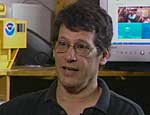
Dr. Steven Miller Interviewed: like a good SB trooper he even manages
to work in the term.
February 02, 2005
2/2 - January Sets Web Traffic Record
Not always certain who's checking in, but the volume of traffic continues to grow. In the beginning we were warned by certain "communications experts," that, "You're only going to get one shot at the public with your 'message', if you don't hook 'em immediately, you'll never find an audience." That's what's known as short attention span corporate type thinking which has sadly infected so much of the environmental world. The environment is different from corporations, and environmental thinking should be different. The idea of "shifting baselines" is going to be around, relevant, and important long after every major corporation of today has long since told their shareholders to go home. We don't know how long this project will run, but after two years its at its strongest point yet, as evidenced by the web traffic. Our busiest day so far was 947 visitors. This month we should have a day of over 1000 visitors.
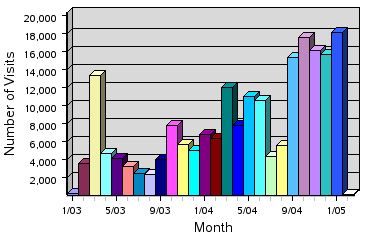
Shifting the baselines upwards.
February 01, 2005
2/1 - Undersea Creatures Lack "Moral Values"? Helvarg defends SpongeBob
Shedding life on the sexually unrestrained lifestyles of sea creatures, Blue Frontier pioneer David Helvarg comes to the defense of SpongeBob in the LA Times.
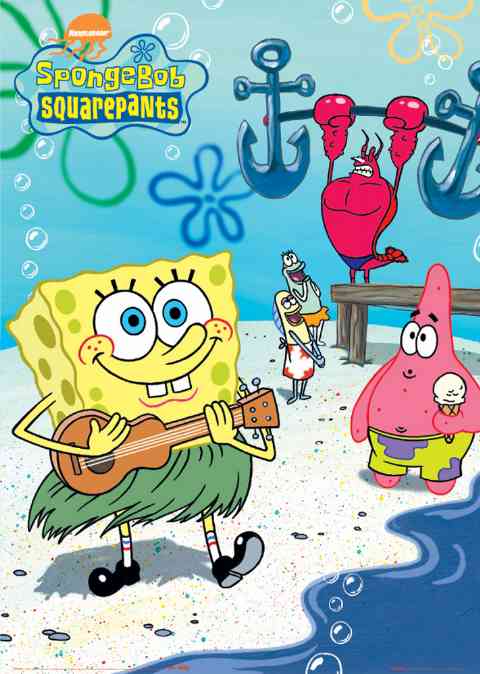
Asex Talk: Spongebob rages beneath the waves
